Within the dynamic environment of Silent Rich opportunities, the roles of broker and referrer are both pivotal and distinct. Each offers unique opportunities and financial rewards, making a clear understanding of their differences crucial for anyone aiming to effectively leverage their network.
For detailed information on our compliance and standards, including additional SEC Guidelines regarding licensed brokers, please visit our official compliance page.
Understanding Brokering and Referrals
Brokers dive deep into the intricacies of deal-making, fully engaging in every aspect of the transaction from initiation to closure. This comprehensive involvement requires a high level of expertise and commitment, rewarded with commissions that reflect the significant value they bring to each deal. On the other hand, referrers contribute at a more introductory level. They use their networks to connect potential business partners, stepping back once the introduction is made. This role, while less involved, garners referral commissions, which, though typically smaller than those earned by brokers, can accumulate substantially across multiple engagements.
Both roles are instrumental in facilitating business transactions, each requiring a tailored set of skills and offering different levels of involvement and potential earnings.
Brokering Business Deals
Brokering is an active, hands-on role where you act as the intermediary between parties ready to do business. As a broker, you’re involved in every step of the process—from identifying potential matches and bringing parties together to negotiating terms and closing the deal. This role demands a comprehensive understanding of the market, including financial, legal, and regulatory nuances. Brokers earn commissions based on the transaction’s value, which can be substantial, reflecting the depth of expertise and effort required.
Earning Referral Commissions
Earning a referral commission is less hands-on but no less strategic. It involves identifying potential business matches and making introductions. Once your part is done, you step back; you’re not involved in the negotiations or the closure of deals. The commissions for referrals are generally lower than those for brokering, aligning with the more limited involvement. Still, this can be a significant income stream, particularly for those with a robust network and a knack for spotting synergistic opportunities between parties.
Key Differences
Level of Involvement
Brokers are deeply engaged in the transactional process, crafting deals that align closely with the strategic goals of both parties. They require strong negotiation skills and a thorough understanding of the industry’s regulatory landscape. In contrast, referrers provide value at the initial stage of a transaction, facilitating connections without engaging in the details of the deal process.
Potential Earnings
Due to the complexity and size of the deals they handle, brokers often see higher earnings than those gained through referral commissions. The demanding nature of their work, which often involves significant legal and financial structuring, justifies the higher fees.
Examples of Brokering and Referral Opportunities
Brokering Scenarios:
– Real estate transactions, both commercial and residential
– Mergers and acquisitions
– Procurement of business financing and investment capital
– Negotiation of commercial leases and commodity trades
– Licensing of intellectual property
– Management of supply chain contracts
Referral Scenarios:
– Introductions to financial advisors or investment opportunities
– Connections between businesses and potential investors or strategic partners
– Links between service providers and businesses requiring specific services
– Healthcare provider referrals for specialized care needs
Becoming a broker typically requires fulfilling rigorous educational and licensing requirements, which vary significantly by industry. This might include obtaining a relevant degree, completing specialized training, and passing comprehensive licensing exams. Successful brokers combine strong interpersonal skills with deep industry knowledge and an ability to navigate complex regulatory environments.
Choosing between brokering deals and earning referral commissions depends on your desired level of involvement, area of expertise, and career aspirations. Both roles are integral to the business transaction ecosystem, offering different but equally valuable paths to building a successful career in business facilitation.
Listen to the Full Article

